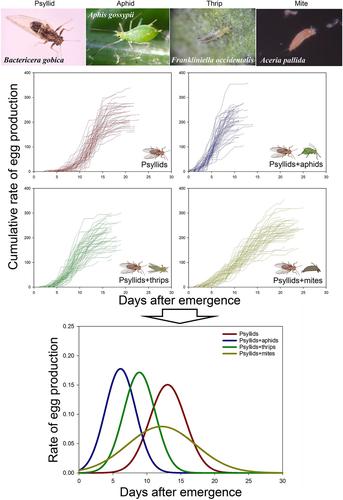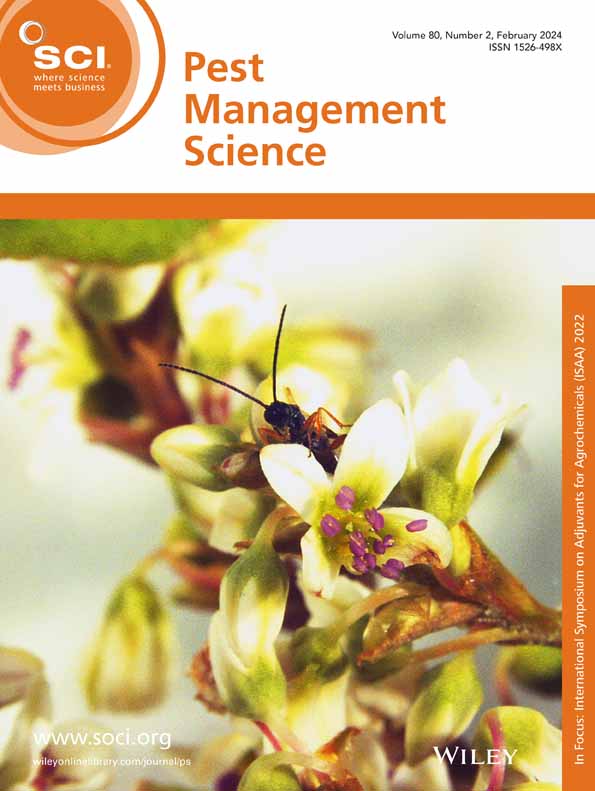Psyllid-mite interactions promote psyllid fecundity by selecting for a different life history
Abstract
BACKGROUND
In interspecific competitive interactions at the same trophic level, herbivores are often hypothesized to exhibit a fast life-history strategy characterized by early reproduction and a short lifespan. Here, we analyzed the shift in life history of the psyllid Bactericera gobica when it interacts with the aphid Aphis gossypii, the thrips Frankliniella occidentalis, or the mite Aceria pallida in similar ecological niches because all of them cause damage to goji berry leaves.
RESULTS
We found that psyllids displayed a typical fast life history when interacting with aphids and thrips. Psyllids that interacted with mites also reproduced earlier than those without any interactions, but later than those interacting with aphids and thrips. Trophic competition typically led to a loss of fecundity in psyllids. To mitigate this loss, psyllids that interacted with mites allocated more resources to reproduction compared to those interacting with aphids and thrips, resulting in their reproduction being spread over a longer lifespan. This life history can be best described as a bet-hedging strategy.
CONCLUSION
Our study suggests that interspecific interactions cannot be solely explained by invoking faster life histories. Instead, the shift in life history may converge towards a finely-tuned match between interacting species. Interactions between psyllids and mites increase psyllid fecundity, potentially promoting the persistence of both species. © 2024 Society of Chemical Industry.






 求助内容:
求助内容: 应助结果提醒方式:
应助结果提醒方式:


